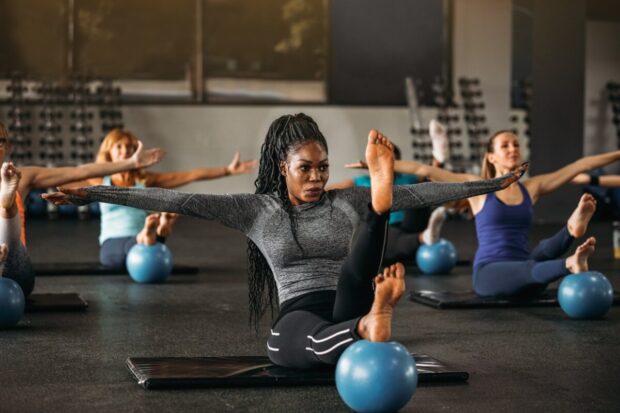
A career as a fitness instructor offers many opportunities for growth, but advancing in this field requires a clear plan and consistent effort. The landscape is competitive, and those who thrive are the ones who commit to personal development and acquiring new skills. Anyone serious about growing in this profession should focus on improving both the technical and interpersonal aspects of their role.
If you’re looking to take the next step, here’s a roadmap that can help you move forward.
Key Points:
- Gain relevant certifications that increase credibility.
- Network with professionals to build connections.
- Diversify your expertise by learning new techniques.
- Create a personal brand that sets you apart.
- Focus on improving client communication and retention.
1. Gain Relevant Certifications
To stand out as an expert in the fitness industry, acquiring certifications is a must. Credentials show your commitment and professionalism, giving potential clients and employers confidence in your skills.
For example, the American Sports and Fitness Association (ASFA) offers a wide range of certifications that can enhance your qualifications in specialized areas. Pursuing a certification like the one offered by ASFA can set you apart from others, demonstrating that you have the necessary knowledge and skills to guide clients safely and effectively.
A well-rounded professional never stops learning, and certifications open doors to new opportunities. Whether you’re interested in strength training, functional movement, or even nutrition, broadening your skill set through certification will keep you in demand.
2. Build a Strong Professional Network

Connecting with others in the industry is vital for career growth. Attend events, seminars, or online conferences where you can meet like-minded individuals and experts. Building a solid network allows for collaboration, idea exchange, and even potential job referrals. A recommendation from a colleague can hold more weight than a job application without connections.
Networking platforms like LinkedIn are ideal for staying connected with industry leaders and sharing your professional journey. Engage in discussions, join relevant groups, and always keep your profile updated. Strong relationships with peers can unlock opportunities you might not have found otherwise.
3. Diversify Your Skillset
Sticking to one area of fitness expertise can limit growth. Expanding your knowledge to different fitness modalities can make you more versatile and in demand. Whether it’s HIIT, yoga, or weightlifting, mastering new skills will help attract a wider range of clients.
Take time to research which new techniques are gaining popularity. Then, consider incorporating them into your practice. Offering something unique can set you apart in a crowded market. Keep in mind that staying flexible in your approach is key to long-term success.
4. Create a Personal Brand

Clients often seek instructors who stand out in their unique style and approach. Crafting a strong personal brand allows you to communicate your values, specialties, and what makes you different from other professionals.
Your brand doesn’t have to be complex. Start by refining your social media presence. Share testimonials, progress stories, and content that highlights your skills. Being consistent in the way you present yourself across platforms builds trust and keeps your name at the top of people’s minds when they think of health and fitness.
5. Focus on Client Retention
Attracting new clients is important, but keeping existing ones is even more critical for long-term success. Building strong relationships with your clients will keep them coming back, and they may also refer others. Retention begins with communication. Make sure to listen to your clients, understand their goals, and adapt your methods to meet their needs.
Regular check-ins and progress assessments are vital to maintaining a strong relationship. When clients see results and feel supported, they are more likely to stay loyal. Offering additional services like nutrition guidance or virtual coaching can also keep clients engaged.
6. Stay Updated with Industry Trends
Keeping up with the latest trends and research ensures you stay relevant and can offer clients the most effective methods available. Subscribe to industry publications, follow thought leaders, and attend workshops or webinars regularly.
Staying informed doesn’t only benefit you. It also helps your clients achieve better results. Being up-to-date with cutting-edge techniques allows you to introduce them to new and exciting ways to improve their health.
7. Invest in Continuing Education

Whether through formal courses or self-study, continuously improving your knowledge can give you a competitive edge. Specialize in areas like injury prevention, sports nutrition, or group fitness, depending on your interest.
Many organizations offer continuing education credits (CECs) that allow you to maintain and expand your credentials. Dedicate time each year to pursue new learning opportunities and see how they elevate your career.
8. Use Social Media Effectively
Social media is an invaluable tool for self-promotion and client engagement. Regularly sharing valuable content related to health and fitness will help build a following and position you as an expert. Platforms like Instagram, YouTube, and TikTok are perfect for sharing workout tips, client testimonials, and your personal fitness journey.
Remember to interact with your audience. Reply to comments, answer questions, and be approachable. Social media gives potential clients a sense of who you are before they ever meet you. The more authentic and engaging you are, the stronger your online presence becomes.
FAQ Section

1. What’s the most important certification to get first?
Start with a general certification that covers a broad range of fitness fundamentals. This sets the foundation for specialization later.
2. How can I attract new clients as a beginner?
Focus on building a social media presence and offer free introductory sessions to showcase your expertise and personality.
3. Is it necessary to specialize in a particular fitness style?
Specializing is not essential at the start, but it can help distinguish you in the long run, especially if you want to work with specific client groups.
4. How do I balance my personal fitness goals with my clients’ needs?
Set aside specific time blocks for your training. Keeping yourself in shape is important but must be balanced with client obligations.
5. How can I retain long-term clients?
Regularly check in with clients, track their progress, and adjust workouts to keep them engaged. Personal attention goes a long way.
By taking these practical steps, anyone can move forward in their career as a fitness instructor. Gaining certifications, building a network, diversifying skills, and focusing on client retention are essential parts of the process. Combining these efforts with a strong online presence ensures long-term success in a highly competitive industry.




